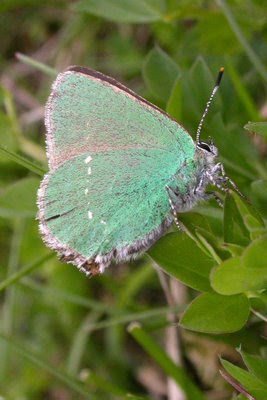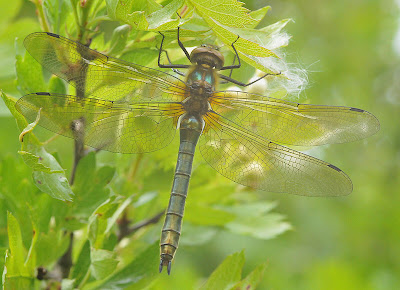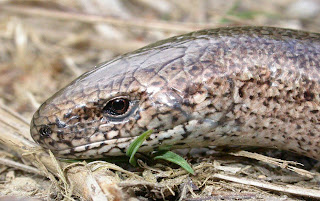Phytomyza astrantiae (Hendel, 1924)
An Agromyzid (Diptera) leaf-miner new to Britain.On 16th May 2009 David Manning noticed mines on the leaves of Astrantia major in his garden in Sharnbrook, Bedfordshire. Looking at the leafmine website,
www.leafmines.co.uk, only one miner was recorded on this plant – the dipterous miner Phytomyza spondylii, although this record, from Kew Gardens, referred to a species normally found on Heracleum.
David sent photos to Rob Edmunds who said it looked like Phytomyza astrantiae. Dr Willem Ellis in the Netherlands confirmed this identification.
The mines of this species key out in Hering, forming blotch mines on the leaf, whereas the mines of P.spondylii are much narrower and longer.
As far as we are aware this constitutes the first record of this miner in the UK.
Phytomyza astrantiae is known from Germany, and has recently been recorded in the Netherlands.
Astrantia major is a perennial garden plant. Members are asked to look at any plants of this species that they have, and let David know if the plants have leaf-mines similar to those shown here. David's contact details are on the contacts page of the BNHS website -
www.bnhs.org.uk

 Close-up of a gorgeous Elephant Hawkmoth. (Uncropped)
Close-up of a gorgeous Elephant Hawkmoth. (Uncropped) An Elephant's eye - crop from the above photo.
An Elephant's eye - crop from the above photo. 

 Three more Elephant Hawkmoth photos.
Three more Elephant Hawkmoth photos. Eyed Hawkmoth
Eyed Hawkmoth Privet Hawkmoth
Privet Hawkmoth Poplar Hawkmoth
Poplar Hawkmoth































